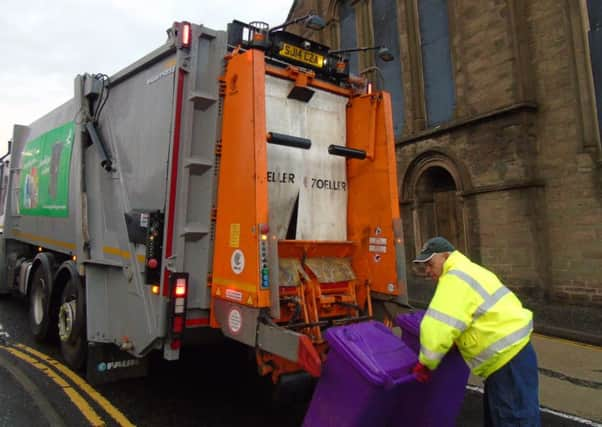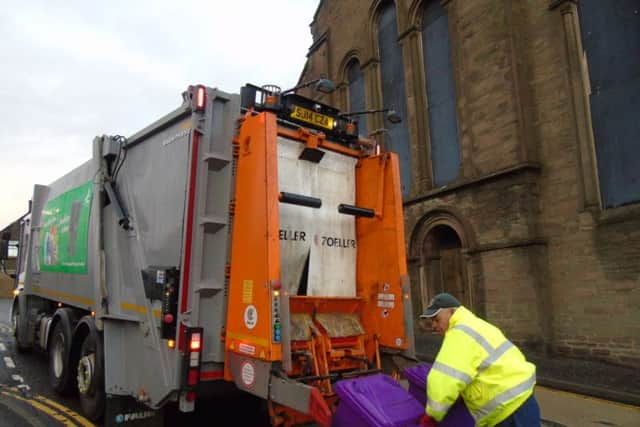Euan McColm: Moray shows council tax freeze has had its day


This is hugely unfair to those members of local authorities who work hard, think quickly and make a positive difference to people’s lives. Not all councillors are idiots. A great many, however, are.
Rarely has there been more compelling evidence of this depressing truth than in 2007, shortly after the SNP won its first Holyrood election.
Advertisement
Hide AdAdvertisement
Hide AdThe Scottish Government had announced that council tax rates would be frozen. This was all about helping hard-pushed families cope with tightening household bills and what have you.


In fact, it was a clever – if reckless – policy aimed at the middle class voters who can be depended upon to turn out on polling day. The council tax freeze was retail politics spun as social justice.
In order for this policy to work, the Scottish Government required the co-operation of the country’s 32 councils.
Finance Secretary John Swinney is a gifted politician, but even he must have been surprised by the enthusiasm with which councils – represented in talks by the Convention of Scottish Local Authorities (Cosla) – signed up to the SNP’s much trumpeted concordat (described by ministers at all times as “the historic concordat”). Seduced by the concordat’s removal of ring-fencing of many millions of pounds of cash, councils agreed to deliver the nationalists’ pledge to freeze council tax.
This was an act of collective stupidity that has cost councils – and all who depend on their services – dear.


The big winners in all of this were the SNP, which had come up with a populist policy tailor-made for the self-interested voter, and those who own the most expensive homes. Those better off Scots have saved most since the Scottish Government’s council tax freeze began in 2007.
Councillors should not have signed up to a policy that would, inevitably, mean a reduction in the services they were able to provide. The vulnerable lost out and councils received no thanks (the gratitude of the middle classes was reserved for the Scottish Government).
Within a very short time of the concordat being signed, it began to dawn on councillors that they had made life more difficult for themselves and those most in need. The council tax freeze – along with broader cuts to budgets – could mean only one thing: councils would, year after year, have less to spend.
Advertisement
Hide AdAdvertisement
Hide AdThe Scottish Government continues to defend its policy, insisting that it compensates councils for any losses they might suffer as a result of the policy. But the truth is that, alongside cuts to budgets, that compensation has not helped maintain services.
Moray Council – run by a group of independent councillors supported by Tories – is the first of Scotland’s local authorities to announce that it is considering ditching the tax freeze. Members of the council will decide next month whether to raise bills by 18 per cent, a move they say would protect frontline services in the face of a necessary cut in spending of £11.9 million in 2016/17.
Should Moray go ahead and raise council tax bills, the Scottish Government is likely to hit the local authority with a £1 million penalty but councillors seem determined to press ahead. Other local authorities – including Highland and Fife – are also said to be considering an end to their own council tax freezes.
First Minister Nicola Sturgeon told MSPs on Thursday that the council tax freeze was “fully-funded”. She pointed out that every year charges had remained the same, the Scottish Government had compensated councils for the amount that they would have raised in revenue if they increased council tax by the rate of inflation.
But she conceded that local government budgets had fallen, across the board, by two per cent.
Those who depend on day care centres, who rely on social work departments for vital support, or who perhaps might just like to see their bins collected on a weekly basis, know that the reality of this seemingly small cut is very serious indeed.
So good on Moray for challenging a policy that does nothing but harm the weakest and poorest.
The SNP’s story of Scots – that we are peculiarly selfless and compassionate – is seductive. Who doesn’t want to be told they’re lovely? But policy after policy is designed to tickle the selfish gene.
Advertisement
Hide AdAdvertisement
Hide AdFree prescriptions for the well off, free university tuition for middle class kids, and a council tax freeze that’s seen the wealthiest Scots save thousands are not, however they might be branded, progressive policies.
Opposition MSPs (of different parties) express private frustration with the council tax freeze but no party seems willing to publicly demand a change in the policy. Instead, all of our major parties are committed to matching the SNP on this one.
The only person, as far as I can see, who could sell to voters an end to the council tax freeze is Sturgeon. Such is the SNP’s dominance of Scottish politics that she has breathing space now to do things because they are right not just because they are popular.
The First Minister talks the language of socialism but the reality of SNP policies is very different. Perhaps even more than the nationalists’ hated Tony Blair, the SNP’s main concern is keeping the middle classes sweet.
In May, the SNP will win a third Holyrood victory. Sturgeon will have a personal mandate. She will have the authority, as never before, to shape her party’s policies and therefore the direction in which Scotland moves.
The First Minister could continue to play it safe, preaching a message of competence to better off Scots while ensuring they are in receipt of all manner of freebies. Or, she could be bold and truly progressive. She could start redistributing a little from the rich to the poor. She could live up to her own rhetoric.
The Council Tax freeze has had its day. If we want a society which looks after the most vulnerable, then we must stop cutting the services on which they depend.